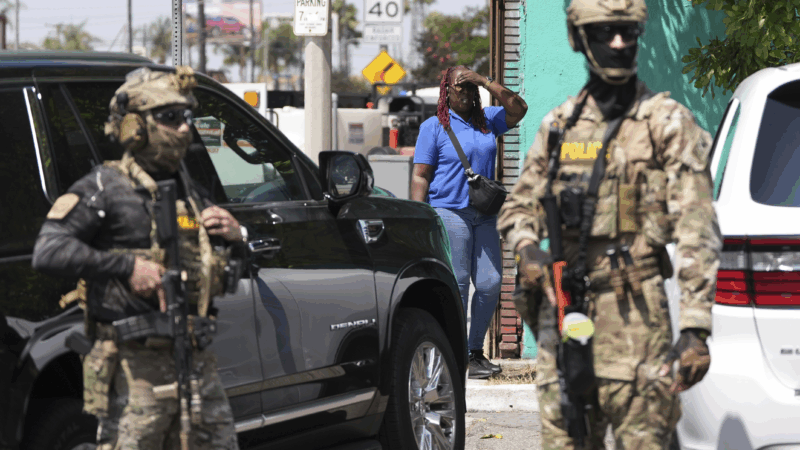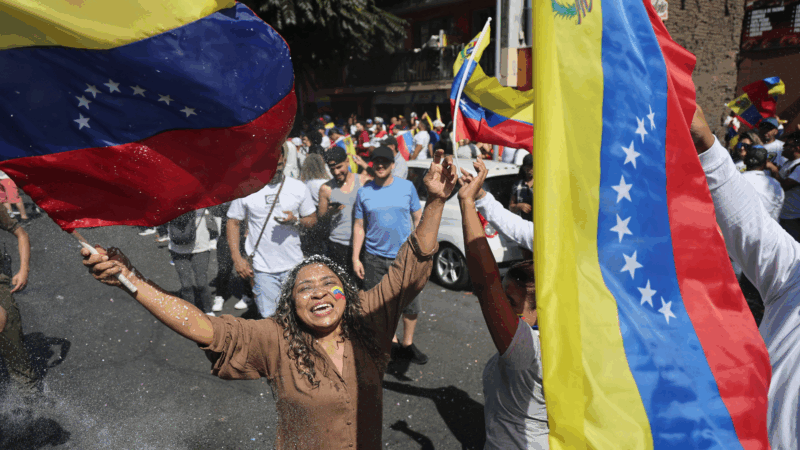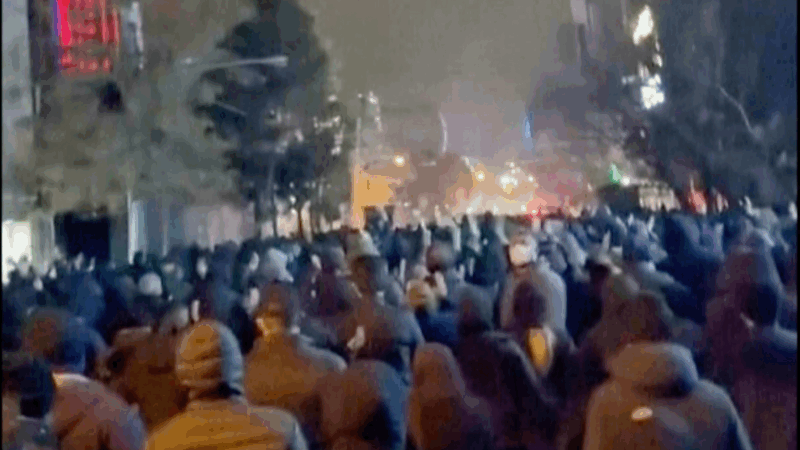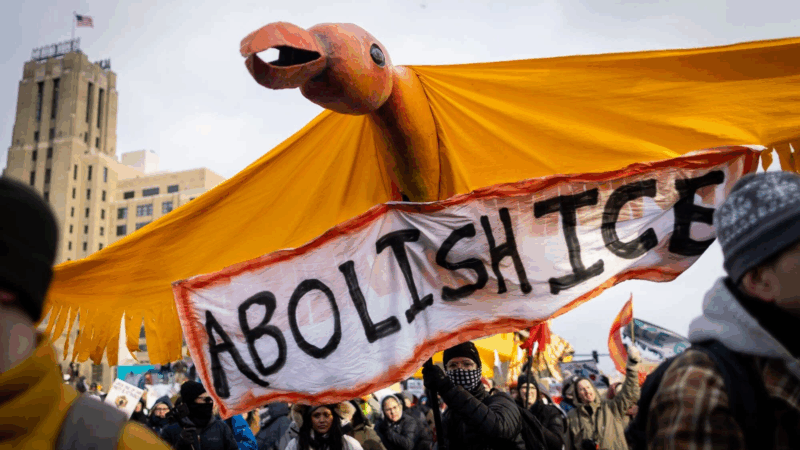California bans masks meant to hide law enforcement officers’ identities
SACRAMENTO, Calif — California Governor Gavin Newsom has signed a law banning law enforcement from wearing masks on duty except for things like riot gear, medical masks and undercover work.
Saying it’s the first bill of its type in the country, Newsom — a Democrat and frequent critic of President Trump — said it was a sign of growing authoritarianism to have detentions in by masked men “hidden from accountability, any transparency, any oversight. That’s Trump’s America.”
He said federal agents had operated for years in the state unmasked and called masking “a new construct conceived to terrorize our diverse communities.”
The law, called by sponsors the “No Secret Police Act,” comes in response to increased immigration enforcement in California, particularly in Los Angeles. Newsom went to L.A. for the bill signing.
President Trump’s mass deportation program has led to scenes of masked federal agents detaining people off the streets, often without badges or indicating what agency they’re from. The city has been the scene of protests against Immigration and Customs Enforcement (ICE) raids.
The impact of the law could be decided in court
The law takes effect next year. It’s unclear exactly what powers state lawmakers have to regulate the conduct of federal law enforcement. University of California, Davis law professor Raquel Aldana says California is trying to use this law to identify what federal agents can and cannot do within a state.
She said there has to be a line somewhere for states outlawing — as hypothetical extremes — things like murder or torture by federal agents. “At some point, the answer has to be ‘no’ and I think this is what the state of California is trying to do. Establish limits as to how much the federal government can do within the jurisdiction of the state. It’s an issue of state sovereignty.”
Lawmakers in a few other states, including New York and Massachusetts, are considering similar moves.
ICE declined to comment when contacted by NPR. In general, ICE officials have said their agents wear masks to prevent from being identified in videos or photos posted online, sometimes resulting in threats to them or their families.
Newsom also signed several other bills including one that would require law enforcement to clearly display their name or badge number while on duty; another requiring schools to notify parents and staff when immigration enforcement is on site; and two others prohibiting schools and health care facilities from allowing ICE agents on their grounds without valid warrants.
Aldana noted that the legal impact of the mask law on federal law enforcement could be weakened because it does not apply to California state-level law enforcement.
But it does apply to police and sheriffs offices and other local agencies, who routinely operate unmasked. By July 2026, their agencies have to issue mask policies following the law.
California law enforcement groups have opposed it
Several California organizations representing local law enforcement agencies, including the California State Sheriff’s Association, opposed the bill, calling it reckless and dangerous to officers and their families.
Riverside County Sheriff Chad Bianco, a Republican running in the 2026 race for governor, said the ban showed Newsom and Democratic lawmakers care more about the safety of criminals than officers.
“They didn’t ban criminals from wearing masks, they didn’t tell criminals that they had to identify themselves,” Bianco said while campaigning in Northern California on Friday. “Every single person that voted for that needs to be eliminated in the next election. Anyone that votes for those people are absolute idiots.”
The California Peace Officers Research Association — the largest law enforcement organization in the state representing over 80,000 public safety members — and Police Chiefs Association were also against the bill.
Giselle Garcia with NorCal Resist, a Sacramento-based mutual aid organization that provides legal assistance to immigrants at risk of deportation, said the ban would be helpful even if it’s not enforceable.
“There’s always a tension between state rights versus the federal government’s rights and scope of power,” Garcia said. “However, what we do know is that when things are codified under law, there is more of an opportunity to not just cite to law, but hopefully there’s some kind of basis for litigation to really challenge when there’s a federal government abuse happening.”
Garcia said the organization’s court observers have been verbally harassed and physically assaulted by ICE agents wearing masks who refuse to identify themselves when asked.
Gerardo Zavala covers state government and politics for Capradio.
Sunday Puzzle: Pet theory
NPR's Sacha Pfeiffer plays the puzzle with KAMW listener Daniel Abramson of Albuquerque, N.M, and Weekend Edition Puzzlemaster Will Shortz.
Venezuela’s exiles in Chile caught between hope and uncertainty
Initial joy among Venezuela's diaspora in Chile has given way to caution, as questions grow over what Maduro's capture means for the country — and for those who fled it.
Inside a Gaza medical clinic at risk of shutting down after an Israeli ban
A recent Israeli decision to bar Doctors Without Borders and other aid groups means international staff and aid can no longer enter Gaza or the West Bank. Local staff must rely on dwindling supplies and no international expertise.
Iran warns US troops and Israel will be targets if America strikes over protests as death toll rises
Iran's parliament speaker warned the U.S. military and Israel would be "legitimate targets" if America strikes the Islamic Republic, as threatened by President Donald Trump.
Bob Weir, guitarist and founding member of the Grateful Dead, has died at 78
For three decades with the Grateful Dead and three more after the group ended following the 1995 death of his bandmate Jerry Garcia, Weir helped build and sustain the band's legacy across generations.
Nationwide anti-ICE protests call for accountability after Renee Good’s death
Activist organizations are planning at least 1,000 protests and vigils this weekend. Officials in major cities cast Saturday's demonstrations as largely peaceful.








